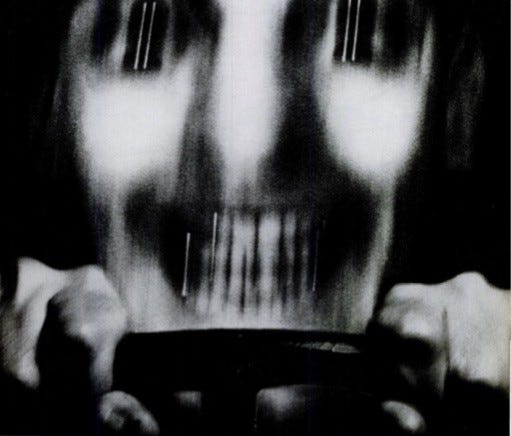You are now approaching: Utopia
The human biological, a physical manifestation of the will of life, has two things which it strives for: protection and propagation. Protection being sought after through sanctuary from the danger of competition and the elements has its basest implementation in the homeostasis of the body. Propagation is manifested in an overriding impulse towards sexual gratification. This normatively manifests in the creation and rearing of young, but overflows into masturbatory excess and anti-social perversion.
Utopia imagines the immortal continuation of ideal conditions. An eternally safe state of things devoid of physical danger, hypothalamic desire or psychological anxieties. The natural tendency to propagation is satisfied in utopia to the highest eugenical form, that which reproduces to allow for the further production and temperamental stability of utopian ideology. Any surplus sexual desire is neutralized through the dispensation of radical pleasure, utopia has the technology to lull every sexual system into sedation. Contrary to the nature of material reality, utopia imagines an otherworldly pure state in which all privation has been conquered to such an extent as to render the concerns of space and time static.
The human desires the eternal, which is the exact opposite to its transient self. Utopia is the ultimate object of desire, protection and propagation are satisfied by a return to the womb. The highest form of emotive, irrational protection and the potential for new life held in a permanent stasis. All threats are drowned by re-submersion in amniotic fluid.
Utopia is the most thinkable impossibility for the fallen human animal, a dream which lies contrary to so much about the mystery and messy imperfection of being. Yet it is the final cause which drives the the imagination of ideology and the reason for much futile, yet positive, human striving. All utopias are tainted by the fact that they cannot fully eradicate the human, and thus accidents. All alterations of material circumstances or creations of human invention have their origin in that which they seek to alleviate: “[…] it would be false to believe - as intellectuals easily tend to do - that the centuries of the Enlightenment actually changed the populace in a fundamental way.”1
All utopia is artificial and thus always falls back to the immovability of some dogmatic precept(s). This ideology organizes itself in very human ways, not perfected ones.
“Political parties, because of the very fact of their being organized, can neither maintain an elasticity in their methods of thought nor be ready to accept any answer that might come out of their inquiry.”2
Unless we possess complete knowledge and metaphysical omnipresence we cannot obtain utopia, a static organization which has foreseen or negated all possibility. Utopia would require a vacuum, of which existence has none. It is precisely that accident of human biology, the intellect and its capacity for knowledge, which disallows utopia. Knowledge, ironically for that which seeks some fixed ‘truth’, “always has to retain its experimental character if it wishes to do justice to new sets of facts”.3 Human intelligence has constructed the state, ‘science’ and politics which run contrary to the simply biological facts of man. The tools of civilization constantly attempt to disguise the unseasoned aspects of human existence, utopia employs “the absolute state […] setting forth of its own interpretation of the world”.4 Knowledge is so important to our rebellion against reality that all its political forms “strove to provide their conflicts with philosophical foundation and systematization.”5
Hence there is a natural alliance in utopia of a philosophical nature. An “alliance between science and politics”, in which our striving for cleanliness taints our logics, “crises affecting political thinking also become the crises of scientific thought”, and through simple induction are crises of philosophy.6 It is at this point utopian science ceases to be Science and utopian philosophy ceases to be Philosophy. “Nothing is more removed from actual events than the closed rational system.”7 It is the “actual events” of our will which make up what is actually human, it is motivation and the unending striving towards desires that make up human existence. It is a fantasy of our brainstem that we can aspire to anything more than the journey through our base will across our limited life. It is through the fantasy of utopia that “one can take flight into a supra-temporal-logic and assert the truth as such is unsullied and has neither a plurality of forms nor any connection with unconscious motivations.”8 It is this rejection of the “plurality of forms” found in nature, the foundation of all particularist thought, which has lead to the abject genocide of any beauty of difference in the utopian appetite for “increasing democratization”.9
For the definition of utopia I describe, contemporary man actually already lives in Utopia proper. Although, like all desires, the satisfaction of our impulse is inevitably disappointing.
Mannheim, K. (2015). Ideology and Utopia: An Introduction to the Sociology of Knowledge. Translated by Wirth, L. and Shils, E. Martino Publishing. p.34
Ibid. p.32
Ibid.
Ibid. p.33
Ibid.
Ibid.
Ibid. p.197
Ibid. p.38
Ibid. p.33




